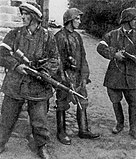The Government of Poland takes place in the framework of a unitary semi-presidential representative democratic republic, whereby the President is the head of state and the Prime Minister is the head of government.

The Socialist Party of Ukraine is a social-democratic political party in Ukraine. It is one of the oldest parties and was created by the former members of the Soviet-era Communist Party of Ukraine in late 1991 when the Communist Party was banned. It was part of the Verkhovna Rada from 1994 to 2007 and was long the fourth biggest party of Ukraine. Since 2007, the election results of the party have been extremely marginal. Oleksandr Moroz led the party for more than twenty years.

The Verkhovna Rada of Ukraine, often simply Verkhovna Rada or just Rada, is the unicameral parliament of Ukraine. The Verkhovna Rada is composed of 450 deputies, who are presided over by a chairman (speaker). The Verkhovna Rada meets in the Verkhovna Rada building in Ukraine's capital Kiev. The deputies elected in the 21 July 2019 Ukrainian parliamentary election were inaugurated on 29 August 2019.
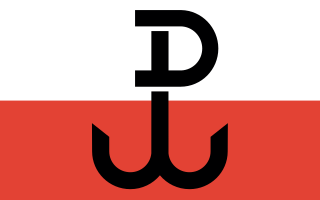
The Polish Underground State was a single political and military entity formed by the union of resistance organizations in occupied Poland, that were loyal to the Government of the Republic of Poland in exile in London. The first elements of the Underground State were established in the final days of the German and Soviet invasion of Poland, in late September 1939. The Underground State was perceived by supporters as a legal continuation of the pre-war Republic of Poland that waged an armed struggle against the country's occupying powers: Nazi Germany and the Soviet Union. The Underground State encompassed not only military resistance, one of the largest in the world, but also civilian structures, such as education, culture and social services.
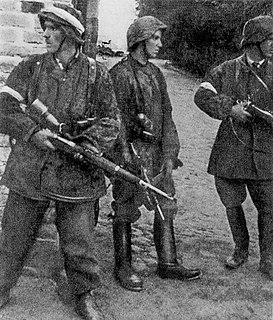
The Government Delegation for Poland was an agency of the Polish Government in Exile during World War II. It was the highest authority of the Polish Secret State in occupied Poland. It was headed by the Government Delegate for Poland, a de facto deputy Polish Prime Minister.
The Council of Three was a collegial body created by the Polish Government in Exile in 1954 with prerogatives of the President of Poland. It consisted of three members of the government chosen by the Rada Jedności Narodowej, a rump parliament in exile.

Rada Jedności Narodowej was the quasi-parliament of the Polish Underground State during World War II. It was created by the Government Delegate on 9 January 1944.
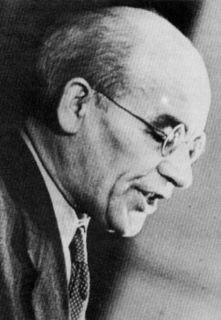
Krajowa Rada Narodowa in Polish was a parliament-like political body created during the later period of World War II in German-occupied Warsaw, Poland. It was intended as a communist-controlled center of authority, challenging organs of the legitimate and mainstream Polish Underground State. The existence of the KRN was later accepted by the Soviet Union and the council became to a large extent subjugated and controlled by the Soviets.
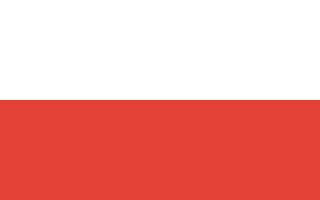
The Provisional Government of National Unity was a government formed by a decree of the State National Council on 28 June 1945. It was created as a coalition between the Polish Workers' Party and politicians from close political sphere of Stanisław Mikołajczyk, former Prime Minister of the Polish government-in-exile.

Krajowa Rada Radiofonii i Telewizji is the Polish broadcasting regulator, which issues radio and television broadcast licenses, ensures compliance with the law by public broadcasters, and indirectly controls state-owned media. It is roughly equivalent to the Federal Communications Commission in the United States.
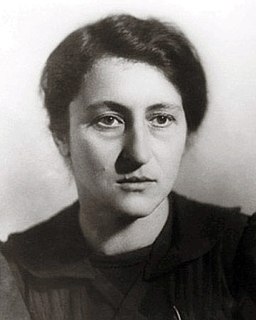
Union of Polish Patriots was a political body created by Polish communists and Joseph Stalin in the Soviet Union in 1943. The ZPP, unofficially controlled and directed by Stalin, became one of the founding structures of the Soviet-controlled communist government that after World War II took power in Poland.
Związek Ludowo-Narodowy was a Polish political party aligned with the National Democracy political movement during the Second Polish Republic, gathering together right-wing politicians with conservative and nationalist opinions.

Kazimierz Pużak (1883–1950) was a Polish politician of the interwar period. Active in the Polish Socialist Party, he was one of the leaders of the Polish Secret State and Polish resistance, sentenced by the Soviets in the infamous Trial of the Sixteen in 1945.

Political Consultative Committee was the beginning of the political arm of the Polish Secret State in occupied Poland during World War II. It was formed on 26 February 1940 by several Polish political parties continuing their activities underground. The parties wanted to tighten the cooperation so that they could have more influence over the newly created Association of Armed Struggle (ZWZ) meant by the Polish government in exile as the main unified organization of the Polish resistance. In April 1940 the government in exile recognized the Committee as the country's political representation.

Operation Antyk also known as Department R was a complex of counter-propaganda activities of Polish resistance movement organisation Home Army, directed against pro-Soviet and pro-communist circles in Polish society, mostly members of the Polish Workers' Party. The operation was initiated by Office Antyk of the Home Army’s Bureau of Information and Propaganda. Begun in November 1943, it was directed by Tadeusz Żenczykowski.
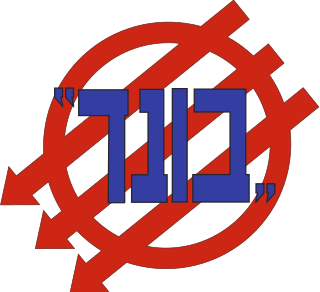
The General Jewish Labour Bund in Poland was a Jewish socialist party in Poland which promoted the political, cultural and social autonomy of Jewish workers, sought to combat antisemitism and was generally opposed to Zionism.

Judiciary of Poland is a responsibility, as defined by the constitution of Poland, of a four-tier court system: the Supreme Court of Poland, the common courts, administrative courts and military courts. Therefore, tribunals are, in a strict definition, not part of Polish judiciary, but in a broad definition, they are included in it.

People's Front is a right-wing, nationalist political party in Ukraine founded by Arseniy Yatsenyuk and Oleksandr Turchynov in 2014.

The Verkhovna Rada of Ukraine of the 8th convocation was a convocation of the legislative branch of the Verkhovna Rada, Ukraine's unicameral parliament. The 8th convocation met at the Verkhovna Rada building in Kiev, having begun its term on 27 November 2014 following the last session of the 7th Verkhovna Rada. Its term lasted five years and closed its last (tenth) session on 24 July 2019.

Snap elections to the Ukrainian parliament were held on 21 July 2019. Originally scheduled to be held at the end of October, these elections were brought forward after newly inaugurated President Volodymyr Zelensky dissolved parliament on 21 May 2019, during his inauguration. The election result was the one-party majority, a novelty in Ukraine, for President Zelensky's Servant of the People party with 254 seats.
